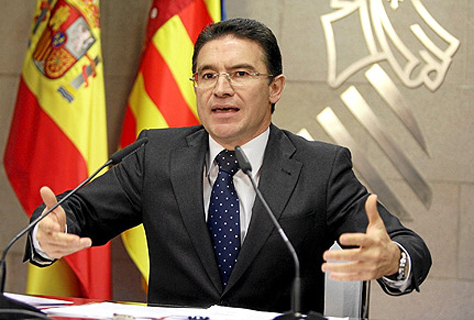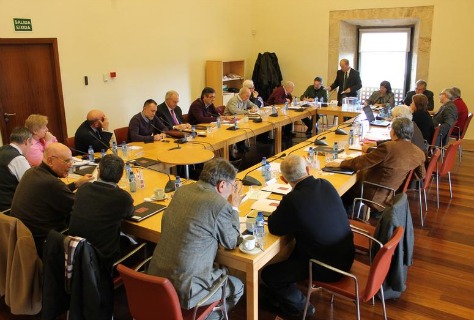02.02.2014 - 10:47
On Friday, the Valencian Academy of Language (Acadèmia Valenciana de la Llengua, AVL) made a historic announcement: they approved by a wide majority the ‘Official Valencian Dictionary’ (Diccionari normatiu valencià, DNV). Among the 93,349 entries, the DNV also ‘addresses, without compunctions, the linguistic reality in order to overcome onomastic conflicts’. In other words, the AVL accepts ‘llengua valenciana’ [Valencian language] as ‘the most traditional way’ of referring to the language, although the term is ‘compatible’ [equivalent] with other terms, including català [Catalan].
This can be shown by looking at the definition that was approved for the word ‘valencià’ [Valencian]: ‘Romance language spoken in the Valencian Community, Catalonia, Balearic Islands, and other territories of the Crown of Aragon and that is also called Catalan’. In a release, the AVL added that ‘the recognition of the unity of the language does not imply the subordination of any of the local variants to any of the others’.
The explicit recognition of the unity of the language—that is that Catalan and Valencian are the same language—was not well received by the People’s Party. Its General Secretary, Serafín Castellano said yesterday in a communiqué, ‘By calling Valencian and Catalan equivalent, the existence of the AVL stops making sense, since it was created precisely in order to defend the personality of our language.’
There are minor differences between the Valencian, Central (e.g., Barcelona), and other dialects of the Catalan language, including vocabulary and verb conjugations—something on the order of the relationship between American and British English. The question of whether Valencian and other dialects of Catalan are the same language has been used politically to divide speakers of the language.
Castellano, speaking for the PP, underlined, ‘The defense of our language cannot be waived and we will allow no intrusions or attacks on our signs of identity, to that which defines us as a people, to our history, and to our particular way of being.’
Another important figure in the Valencian People’s Party, the vice-ombudsman to the Parliament, Rafael Maluenda, was quick to say that the new dictionary ‘is a travesty and an insult to Valencians’. As the oldest member of the Parliament and member of the leadership board of the People’s Party, he said that the Ombudsman’s office would propose that the party offer ‘an initiative to retract the dictionary’.
Twelve years of work
The DNV is the result of a collective task over twelve years, carried out with linguistic rigor ‘that attempts to carefully balance the different linguistic sensibilities in the heart of the AVL,’ said the institution, which, with the approval, considers Friday a historic day for the language and culture of the Valencian people: ‘January 31, 2014 will mark a turning point for all those citizens who love this most emotional and powerful identity marker that a people can have’.
Since the AVL began its work in 2001, it has published several important tomes, including the ‘Diccionari Ortogràfic i de Pronunciació del Valencià, DOPV‘ [Spelling and Pronunciation Dictionary for Valencian] in 2005 with the support of 18 of its 19 members and the ‘Gramàtica Normativa Bàsica] (Official Basic Grammar), unaninmously approved in 2006.
The DNV can be consulted starting next week on the institution’s web page.




